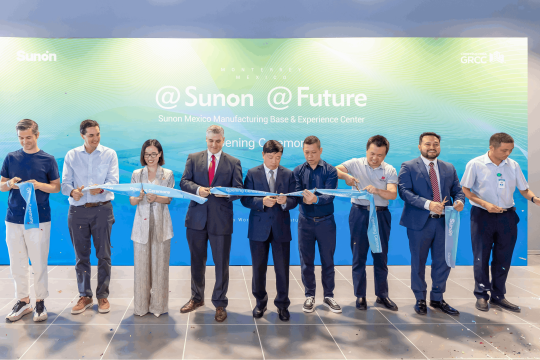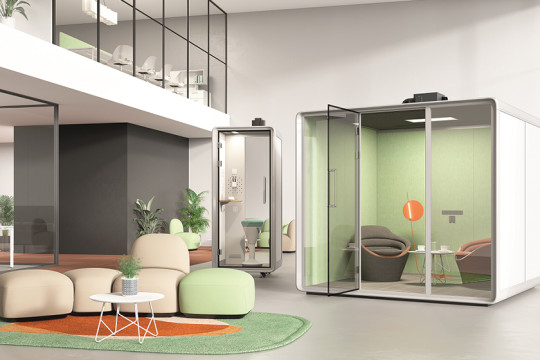Neurodiverse Workplace An Inclusive Space for All
One size does not fit all and that holds true for workplace design as well. Post pandemic, there is a growing importance of worker wellbeing, and companies can optimize their workplaces in the design phase. Organizations are creating workplaces that offer a range of spaces for people to choose where and how they work. As people return to the office, companies not only need to focus on diversity and inclusion but also consider the needs of neurodivergent employees.
Neurodiversity refers to “the diversity of human cognition” and covers a range of conditions such as dyslexia, autism spectrum disorder, ADHD, and others. A report by HOK in 2019 suggested that approximately 15-20 percent of people are neurodivergent, i.e., have one of a collection of these conditions. People who learn and think differently bring different skills and different solutions. People with neurodiversity think outside of the box and are an asset to any organization. Hence, companies need to design the workplace keeping them in mind.
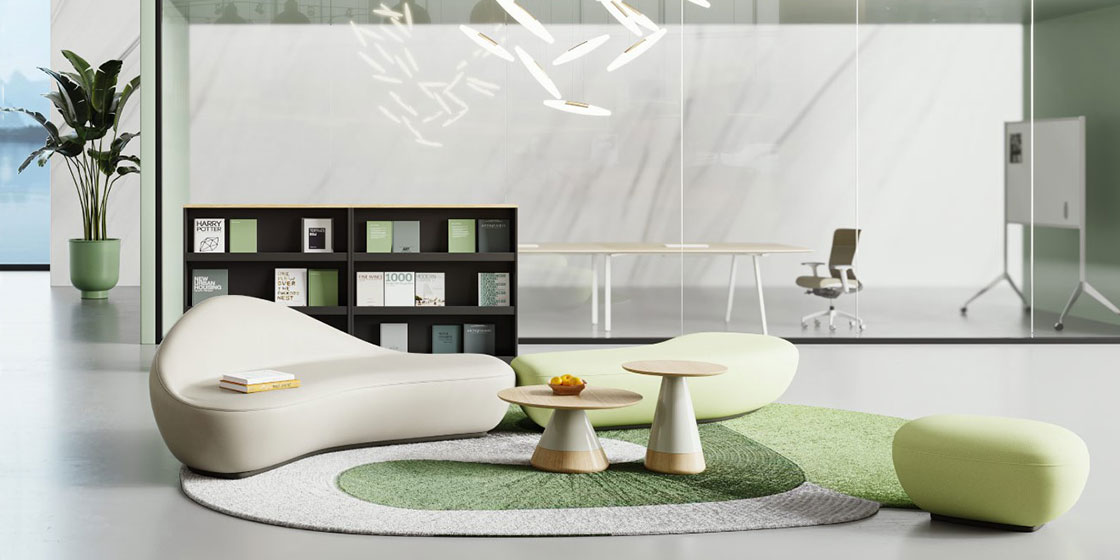
Designing for a Neurodiverse workforce
Different neurological divergences present different needs for the physical environment. They tend to be over-or under-stimulated by their environments, such as noise, lighting, texture, smells, and temperature. Environments should be designed in such a way that they can be accessed, understood, and utilized to the greatest extent by a diverse set of people. It not only helps for neurodiversity but also people with different personalities; such as introverts, extroverts, and anyone in between.
Here are a few considerations to be made while designing for a neurodiverse workforce.
Biophilia and green spaces
Bringing nature indoors and having access to natural light can have a calming effect and improve air quality for neurodiverse workers who are overstimulated. Biophilia helps with wellbeing as being around nature can boost people’s moods and reduce stress, which will be a massive help to those with neurodiversity.
Private and Focus areas
Offer a variety of private work settings so workers can choose the most appropriate environment for their tasks, such as enclosed spaces for more focused work, dedicated phone and meeting pods, and quiet areas with lounge seats. Individuals on the autism spectrum spend prolonged periods of time focused on one task and so they need a low-stimulation environment where distractions including social interactions, are kept to a minimum. Wellness or quiet rooms can also provide a much-needed oasis for employees to recharge.
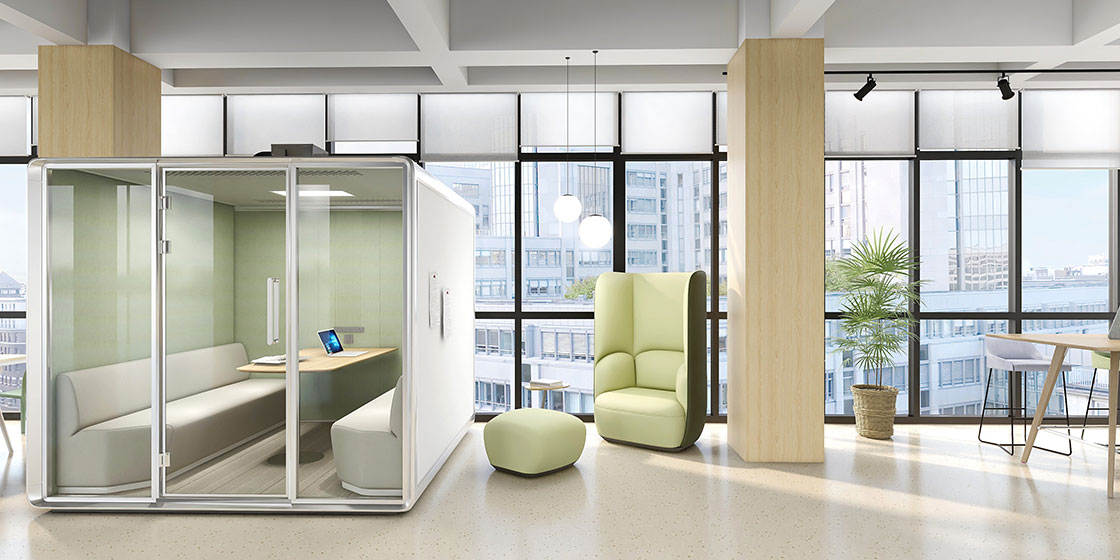
Noise and acoustics
Auditory stimuli can be a challenge for neurodiverse people and offices are usually noisy. Excessive noise is a particular distraction for those with dyslexia, ADHD, and autism. The use of sound dampening materials and plants can help quiet a space and create spaces that are more productive. High-backed, upholstered sofas, portable desk dividers, and acoustic wall tiles are a few other products that can reduce the noise in the office.
Colors and visual impact
Colors have an emotional and psychological impact. Products with complicated colors and patterns may add complexity and have the potential to increase anxiety for neurodiverse people. For them, warm, neutral colors can be used to promote calmness and natural light will be less stressful than artificial light.
Social Spaces
Spaces for collaboration and social interactions are important and offices should have these kinds of break-out spaces. People with ADHD (attention deficit hyperactivity disorder) need more breaks and stimulation in their routine work. This also helps them in creative thinking. Instead of private workspaces, they are more suited to work in a community area and will feel more comfortable in social spaces.
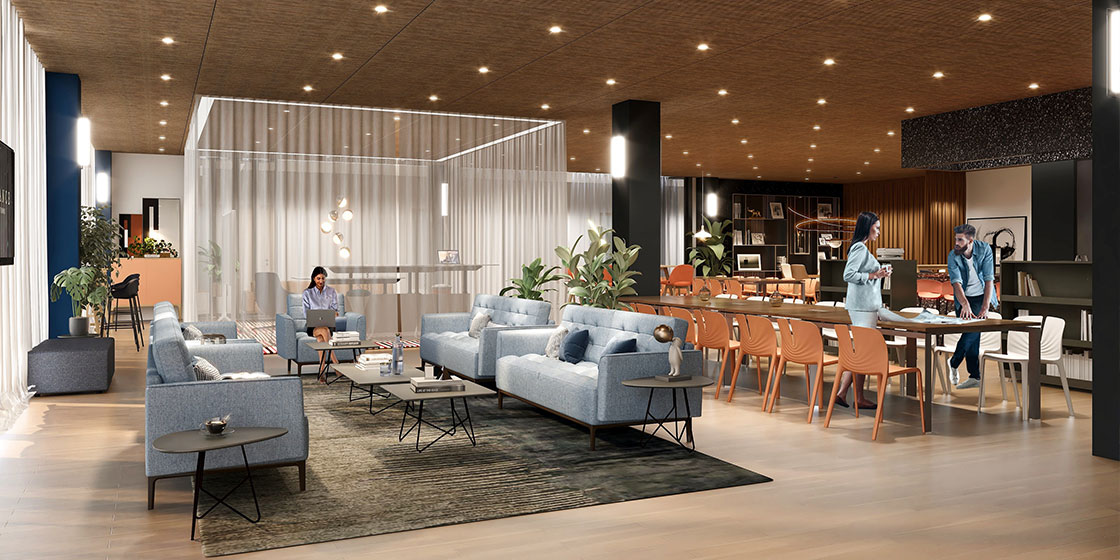
The Takeaway
An inclusive design is welcoming and will encourage people to return to the office. Now is the time to reimagine the workspace that allows all people to thrive. By creating an inclusive and neurodiverse environment, employees are more comfortable and more productive, but it will help the business to attract and retain the best talent.

